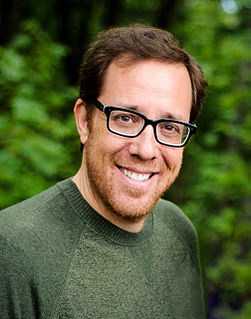A Quote by Francine Prose
With so much reading ahead of you, the temptation might be to speed up. But in fact it’s essential to slow down and read every word. Because one important thing that can be learned by reading slowly is the seemingly obvious but oddly underappreciated fact that language is the medium we use in much the same way a composer uses notes, the way a painter uses paint. I realize it may seem obvious, but it’s surprising how easily we lose sight of the fact that words are the raw material out of which literature is crafted.
Quote Topics
Because
Composer
Crafted
Down
Down And
Easily
Essential
Every
Fact
How
Important
Important Thing
In Fact
Language
Learned
Literature
Lose
Material
May
Medium
Might
Much
Notes
Obvious
Oddly
Out
Paint
Painter
Raw
Raw Material
Read
Reading
Realize
Same
Seem
Seemingly
Sight
Slow
Slow Down
Slowly
Speed
Surprising
Temptation
Thing
Up
Use
Uses
Way
Which
Word
Words
Related Quotes
Any fact facing us, however difficult, even seemingly hopeless, is not so important as our attitude toward that fact. How you think about a fact may defeat you before you ever do anything about it. You may permit a fact to overwhelm you mentally before you deal with it actually. On the other hand, a confident and optimistic thought pattern can overcome or modify the fact altogether.
Being a slow reader would normally be a deficiency; I found a way to make it an asset. I began to sound words and see all those qualities - in a way it made words more precious to me. Since so much of what happens in the world between human beings has to do with the inconsideration of language, with the imprecision of language, with language leaving our mouths unmediated, one thing which was sensuous and visceral led to, in the use of language, a moral gesture. It was about trying to use language to both exemplify and articulate what good is.
An actor uses his body as a tool and an instrument. In the same way a musician plays an instrument, the actor uses his body to convey feeling and emotion. An animator uses a pencil or a computer to create the same thing, the same exact way... An actor is taking words that are not his own, and he has to bring some kind of authentic life to those words. It's the same goal, to create this authentic life. Even if it's a drawing, or if it's a cartoon, you're still trying to create authenticity because, if the character emotes authentically, it has a power to connect with the audience.
I saw more clearly than ever, that the first great and primary business to which I ought to attend every day was, to have my soul happy in the Lord. The first thing to be concerned about was not, how much I might serve the Lord, how I might glorify the Lord; but how I might get my soul into a happy state, and how my inner man may be nourished...I saw that the most important thing I had to do was to give myself to the reading of the Word of God and to meditation on it.
When I'm writing a play I hear it like music. I use the same indications that a composer does for duration. There's a difference, I tell my students, between a semi-colon and a period. A difference in duration. And we have all these wonderful things, we use commas and underlining and all the wonderful punctuation things we can use in the same way a composer uses them in music. And we can indicate, as specifically as a composer, the way we want our piece to sound.





































